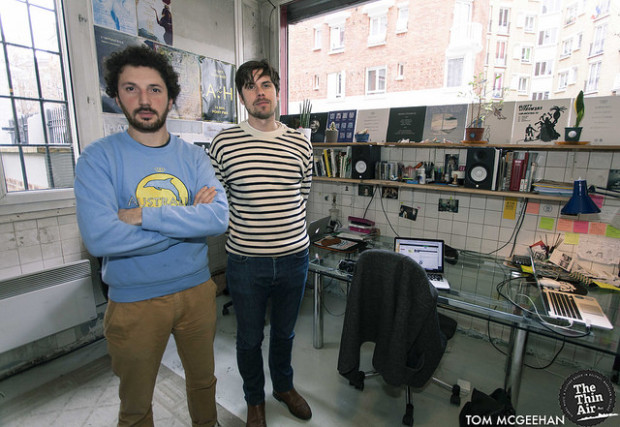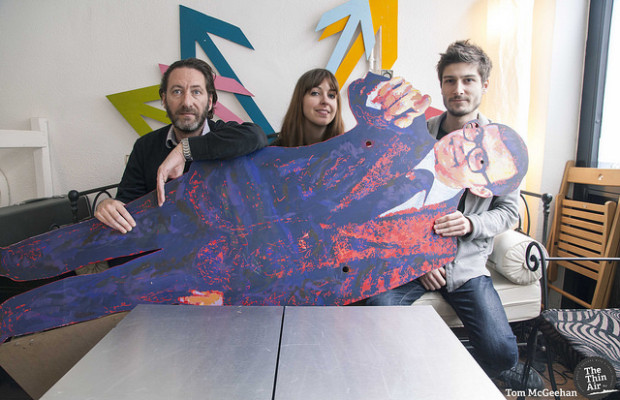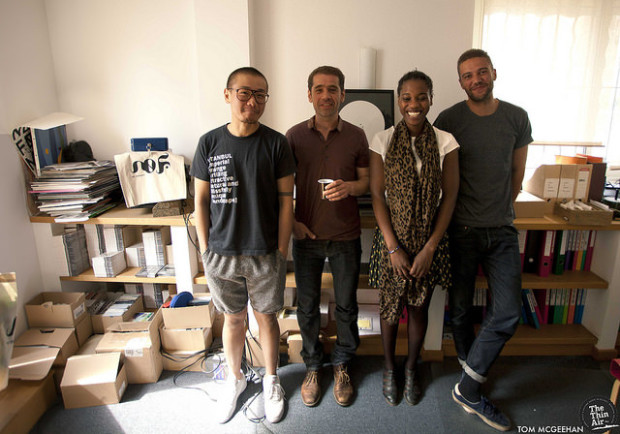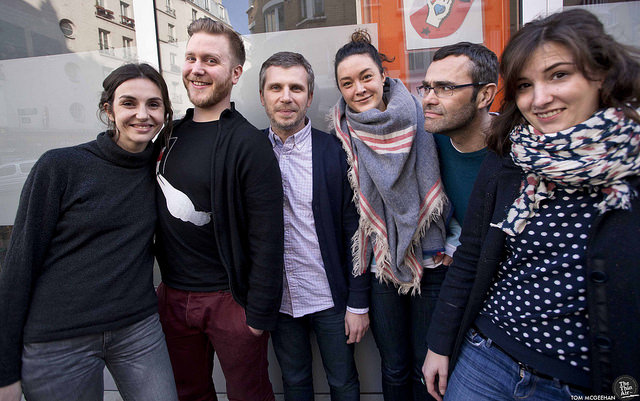In the latest installment of Independents in Paris, Tom McGeehan pops into the HQ of Parisian imprint Cracki Records to discuss and trace their five years in the indie game. For those unfamiliar with Cracki Records, can you tell us a little bit about where the label came from and how it came to exist? Whilst doing a scooter tour of France, we met Flo, who works for a label called ‘Dawn’. He explained how their label works, from starting out to making it a success. A few months later, we ended up in India, which was a big influence…
-
-
In the latest installment of Independents in Paris – his feature looking at some of the city’s finest indie imprints – photographer Tom McGeehan chats to Bertrand Burgalat and Céline Lepage of boutique label Tricatel Records, which has become synonymous with futuristic retro-chic, innovation and a fierce attachment to independent spirit, as well as having helped define the “Burgalat sound”, a major influence on acts including Air and Daft Punk. A label that is coming up on it’s twentieth birthday, tell us a bit about how it came to exist? Bertrand Burgalat (Tricatel Head): I started Tricatel more as a production company than as a proper label,…
-
In the latest installment of Independents in Paris, photographer Tom McGeehan visits independent record label NØ FØRMAT!, home to the likes of Chilly Gonzalez, Mélissa Laveaux, Ballaké Sissoko and more. Chatting to co-manager Thibaut Mullings, he’s granted an insight into the workings of one of the country’s most vibrant and promising indie imprints. Read the first installment – looking at InFiné – here. For those unfamiliar with the world of NØ FØRMAT, tell us a little about how the label came to life? Laurent Bizot founded the label in 2004. At this time the music business was still driven by major companies who…
-
Tucked away in a quiet district of Paris lies InFiné, one of the cities flag-ship independent music labels. With an old corner-shop now-turned office as the unlikely-headquarters for the label, they work mostly with electronic and dance music. Sitting down with Alexandre Cazac, we spoke about the origins of InFiné, and what it is like to be a part of their family. Photos by Tom McGeehan How did InFiné come to exist? The first time we (myself & Yannick) saw Francesco Tristano in 2005 playing classical music like Debussy, and then switching to a classic techno track like “Strings of…




